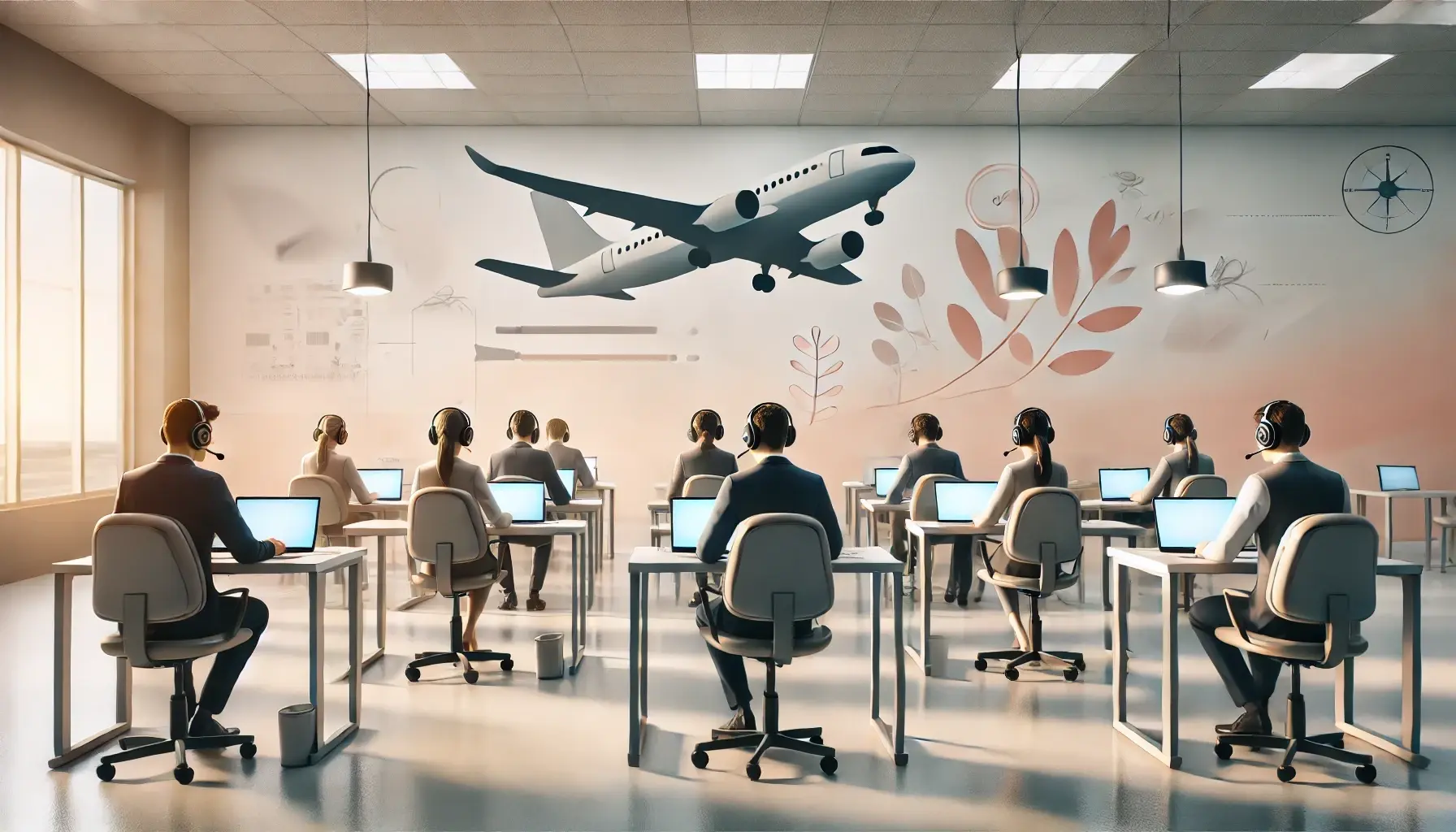Aviation exams are critical in maintaining the high standards of safety, skill, and knowledge that define the aviation industry. For pilots, air traffic controllers, maintenance personnel, and other aviation professionals, these exams are more than a certification, they are a testament to competence and readiness in a field where precision is essential. Proctoring ensures the integrity of these assessments, making it a cornerstone of aviation testing.
What Are the Different Types of Aviation Exams?
-
Pilot Licensing Exams
-
These include certifications like the Private Pilot License (PPL), Commercial Pilot License (CPL), and Airline Transport Pilot License (ATPL).
-
Subjects such as navigation, meteorology, and air law are assessed through theoretical and practical evaluations.
-
-
Air Traffic Control Exams
-
These focus on cognitive skills, situational awareness, and operational procedures.
-
Language proficiency assessments are also a crucial component for international communication.
-
-
Aircraft Maintenance Certification
-
Engineers take exams for general certifications and type-specific qualifications for different aircraft models.
-
-
Flight Dispatcher and Crew Training Exams
-
These include assessments on operational planning, safety protocols, and communication skills.
-
-
Recurrent and Refresher Training Exams
- Periodic testing ensures aviation professionals stay updated with regulatory changes and maintain their competencies.
What is the Role of Proctoring in Aviation Testing?
-
Ensuring Exam Integrity
Proctoring ensures that aviation exams are conducted in a controlled and secure environment, where cheating and other forms of misconduct are effectively prevented. By actively monitoring candidates, proctors uphold the credibility of certifications, ensuring only those with genuine knowledge and skills are qualified.
-
Compliance with Regulations
Aviation exams must meet rigorous regulatory requirements set by governing bodies such as the FAA, EASA, and ICAO. Proctoring helps maintain compliance by enforcing standardized rules and procedures during the exam process, ensuring candidates are assessed properly.
-
Building Stakeholder Confidence
Employers, regulatory authorities, and the general public rely on the accuracy and integrity of aviation certifications. Proctored exams provide assurance that candidates have been rigorously evaluated, increasing trust in the qualifications and abilities of aviation professionals.
-
Standardization Across Regions
The aviation industry operates globally, necessitating consistency in how exams are conducted. Proctoring ensures that the exam standards remain uniform, allowing seamless integration of professionals across different jurisdictions.
What Are the Advantages of Proctoring in Aviation Exams?
-
Improved Exam Security
Proctoring incorporates advanced technologies like AI monitoring and browser lockdowns to detect and deter dishonest behavior. Features such as identity verification and secure test environments ensure that only eligible candidates can access and complete the exams without external assistance.
-
Increased Accessibility
Traditional exams often require candidates to travel to designated testing centers, which can be costly and inconvenient, particularly in remote areas. Online proctoring allows aviation professionals to take exams from their preferred location, making the process more inclusive and accommodating.
-
Cost and Time Efficiency
Proctoring reduces the logistical costs associated with physical test centers, such as venue rentals, staffing, and equipment. Candidates also save time and money by eliminating the need to travel, allowing them to focus on preparing for and taking their exams.
-
Real-Time Monitoring and Reporting
Modern proctoring systems use AI to track candidate behavior and provide real-time alerts for suspicious activities such as unauthorized movements or multiple people in the camera frame. This immediate feedback allows proctors to intervene quickly, ensuring exam integrity is maintained.
-
Scalability
Aviation exams often involve a large number of candidates, particularly during periodic licensing or recurrent training assessments. Proctoring platforms are designed to handle high volumes of candidates simultaneously, providing a seamless and efficient testing experience regardless of scale.
How Talview Helped AAAE Transition to Online Certification Exams?
The American Association of Airport Executives (AAAE) partnered with Talview to transition its certification exams online securely and efficiently. Talview’s features, including AI proctoring, facial recognition for candidate verification and global accessibility, ensured exam integrity and scalability. This shift reduced costs, improved efficiency, and enabled candidates worldwide to participate seamlessly.
Key Highlights:
-
AI Monitoring: Flagged suspicious behaviors for secure exams.
-
Candidate Verification: Ensured authorized access with facial recognition.
-
Global Accessibility: Enabled remote participation from anywhere.
-
Scalability: Managed high candidate volumes effortlessly.
Conclusion
Aviation exam proctoring is more than a procedural requirement—it’s a commitment to upholding the integrity, safety, and excellence of the aviation industry. As technology continues to advance, proctoring solutions are becoming more efficient, secure, and accessible, ensuring that aviation professionals worldwide meet the highest standards.







Leave a Reply